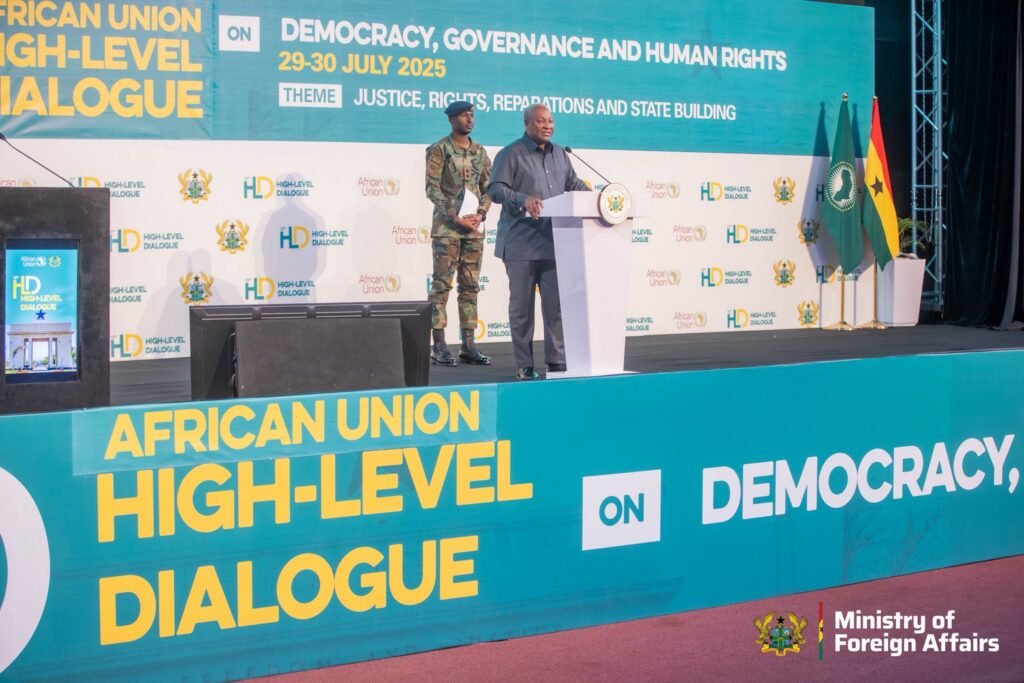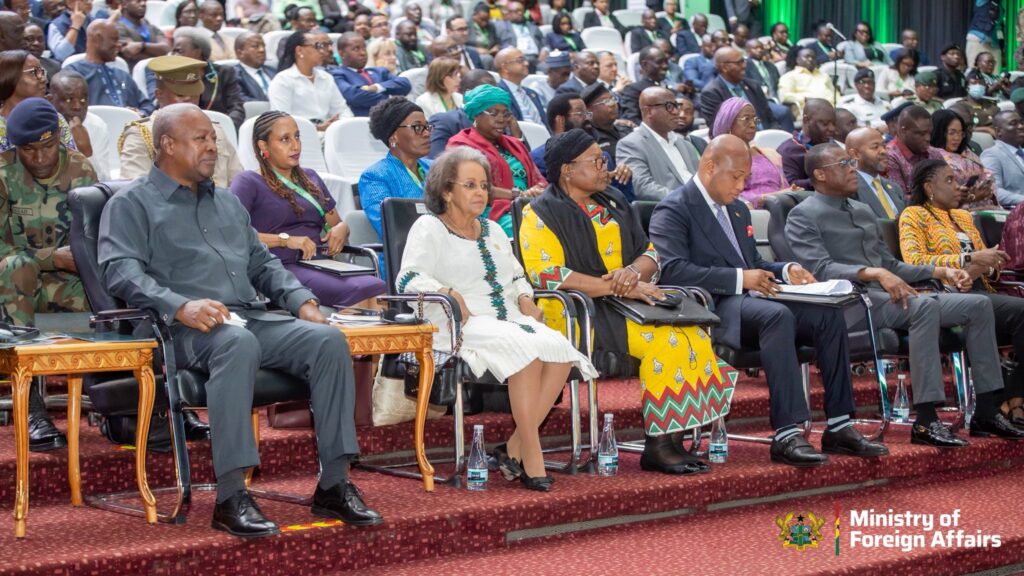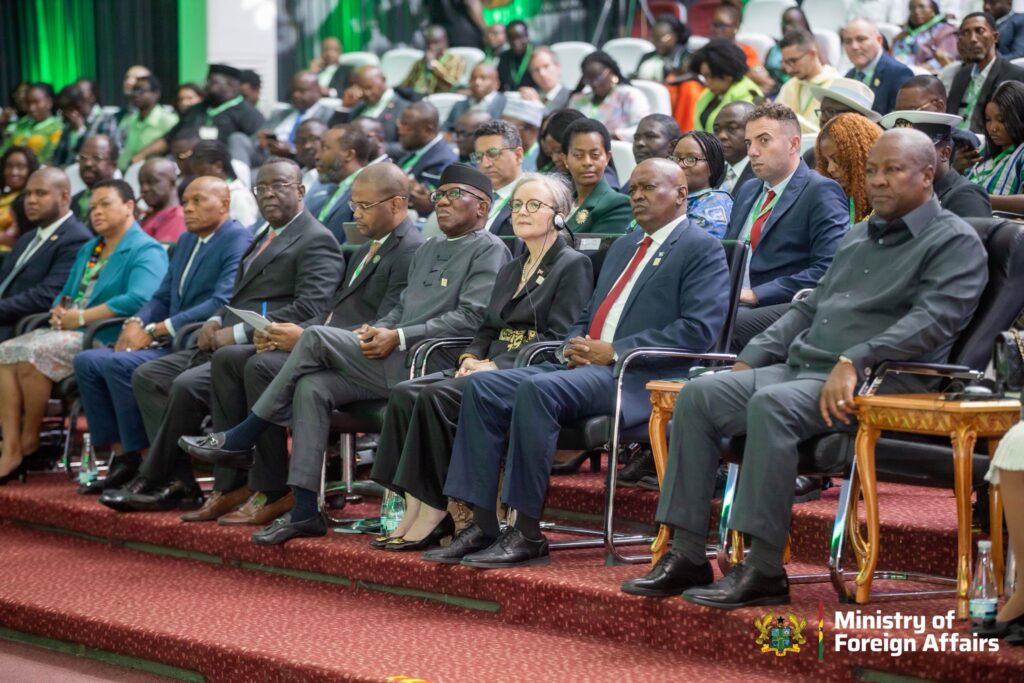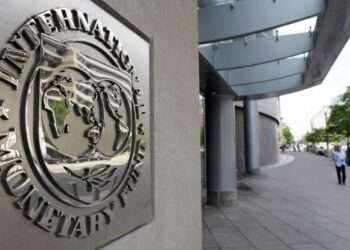President John Dramani Mahama has delivered a powerful and sobering address at the opening of the African Union’s Thirteenth High-Level Dialogue on Human Rights, Democracy, and Governance in Accra, urging African leaders and institutions to move beyond rhetoric and take bold, concrete steps to secure justice, inclusion, and dignity for all Africans.
Addressing a distinguished audience of former heads of state, prime ministers, ministers of state, members of the judiciary, traditional authorities, and civil society actors from across the continent, President Mahama underscored the historic and symbolic importance of Ghana as the host nation.
“It is with profound honour and heartfelt warmth that I welcome you all to Accra, the historic capital of Ghana, the cradle of Africa’s independence struggle, and the spiritual home of Pan-Africanism, and the foreign minister added, welcome to the centre of the earth.
“He didn’t go on to explain why, but it’s that the Meridian and the equator intersect in Ghana’s territory, and that’s why we say it’s the centre of the earth”.
President John Dramani Mahama
Speaking on the theme Justice, Rights, Reparations, and State Building, President Mahama emphasised that the continent is at a defining moment and must seize the opportunity to reset its course.
“This year’s dialogue reaffirms our shared commitment to confronting the structural challenges that continue to shape Africa’s condition.
“It also affirms our conviction that true and lasting peace can only be achieved when justice exists, when the rights of our people are respected, and when governance systems are truly inclusive, accountable, and owned by the people that they serve.”
President John Dramani Mahama

Impact of Colonialism
The President highlighted that many of Africa’s current challenges are rooted in colonial legacies that disregarded African histories, cultures, and aspirations.
According to him, the enduring legacies of slavery, colonial exploitation, systemic racism, and economic subjugation are still visible today in the arbitrary borders that divide the African peoples.
He particularly expressed deep concerns over the fragile governance systems and institutions that the continent is still struggling to strengthen, yet insisted that the dialogue must go beyond merely revisiting a painful past.
“We gather here not only to examine this painful past, but also to shape a different and better future for our continent,” he declared. Tracing Ghana’s historic leadership in Pan-African thought, President Mahama reaffirmed the nation’s commitment to a just and dignified future for the continent.
From the pioneering leadership of Ghana’s first President, Osagyefo Dr. Kwame Nkrumah to Ghana’s recent engagement with reparative justice and democratic consolidation, he stated, the country has never shied away from confronting injustice.
“We believe that unity is our historical imperative and our most effective instrument for achieving justice and prosperity. The Ghanaian people remain committed to building a continent where no one is left behind and every voice is heard and valued.”
President John Dramani Mahama
However, President Mahama cautioned that the dialogue must not devolve into a ceremonial gathering of lofty speeches, stressing that citizens in each country are watching and waiting for better results.

“Our young people comprise the majority of our population and are growing increasingly impatient. They are not asking for charity. They demand fairness. They demand opportunity and a stake in our continent’s future.”
President John Dramani Mahama
Applauds for AU
He lauded the African Union Executive Council for two recent milestones: extending the AU’s theme of the year on reparations into a full Decade of Reparations from 2026 to 2036, and approving the terms of reference for both the AU Commission of Experts on Reparations and the AU Reference Group of Legal Experts on Reparations.
Describing these as “critical milestones,” President Mahama emphasised that the continent must now move swiftly to operationalise these instruments and empower these bodies with the resources, visibility, and mandate to lead the noble journey of truth, justice, and restitution.
He further urged the dialogue to adopt a firm position on the urgent need for legally binding frameworks to protect civic space across all AU member states.
“We must protect the right to organise, to protest, and to participate. Democracy cannot thrive in the presence of fear or repression. The legitimacy of our governments depends on the inclusion of all our people.”
President John Dramani Mahama
President Mahama placed particular emphasis on the role of political and civic education in nation-building. Widespread civic disengagement, he argued, is not merely apathy, but often the result of systemic exclusion and mistrust.
We must integrate political and civic education into our school curriculum. We must encourage public engagement through national dialogues and community platforms.
“And we must ensure that our democratic institutions speak a language our citizens understand and trust. Democracy must not be just institutional; it must be relational”.
President John Dramani Mahama

The President concluded with a passionate call for the dialogue to be a turning point, not a missed opportunity, but real actions that will transcend generations yet unborn.
“This dialogue must be remembered as a meeting of minds and a moment of continental reawakening. Justice must inform the institutions we create, the policies we enact, and the leadership that we embody. This is not a romantic notion. It is a practical and achievable goal if we are united, determined, and courageous to pursue it.”
President John Dramani Mahama
With those words, he declared the Thirteenth High-Level Dialogue on Human Rights, Democracy, and Governance officially open, urging all participants to make the event count — not only in words but in action. “Let us not merely reflect, but let us act. Let us speak of Africa’s potential and realise it in our lifetime,” he ended.
READ ALSO: PHDC Holds Preliminary Talks with Global Investment Consortium



















